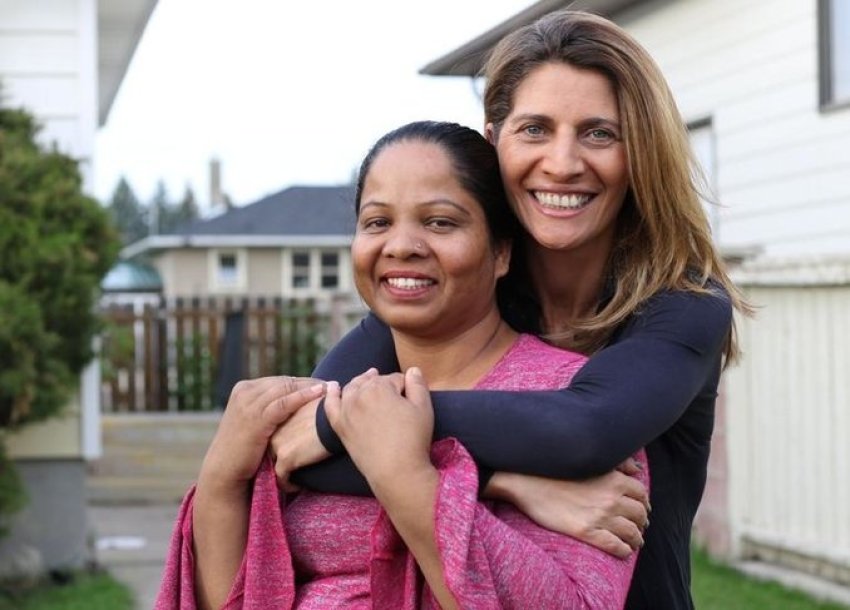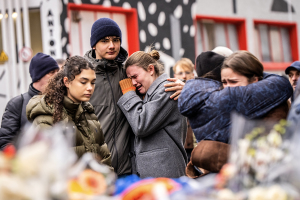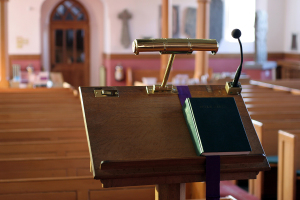Asia Bibi photo emerges as memoir 'Finally Free' is released, details prison torture

A photo of a happy and free Asia Bibi, the Pakistani Christian woman who was imprisoned on death row for over eight years on trumped up blasphemy charges, has gone viral ahead of the release of her memoir.
Bibi, 47, whose case garnered international attention throughout the past decade, is seen in a photo with French journalist Anne-Isabelle Tollet who is co-authoring Bibi's book about her years in prison. The memoir is titled, Finally Free, (Enfin Libre in French), the BBC reported Thursday.
The picture, which appeared in the French publication Le Figwort, shows the journalist hugging Bibi from behind. Bibi is seen smiling as a free woman following years of incarceration. The image went viral on social media with many Twitter users re-tweeting the image in celebration and offering their warm wishes.
"You may know my story through the media, you may have tried to put yourself in my place in order to understand my suffering. But you are far from understanding my daily life in prison or my new life and that's why, in this book, I will explain it all," Bibi writes in the publicity materials for the book.
The publishing house released an excerpt in which Bibi asks: "How could I ever imagine in 50 years that I would become a global symbol of the fight against religious extremism when I am but a simple, illiterate peasant?
"From my small windowless cell, I often wondered why Pakistan was targeting me."
During her incarceration, Bibi's neck was sometimes encased in an iron collar that prison guards would tighten with a nut. Some of Bibi's fellow prisoners were sympathetic to her plight, she says in the book, in which she also reveals how she's adjusting to life in the West.
The book was published in French this week but an English version will be published later this year.
Bibi's ordeal first began in 2009 when she got into an argument with a group of Muslim field workers she worked alongside who berated her for drinking from the same water bucket. They accused her of making the water "impure" because she is a Christian. Muslims are forbidden from drinking from the same container as Christians.
Bibi was also accused by the field workers of committing blasphemy by insulting the Islamic prophet Muhammad, a charge she consistently denied that brings a sentence of life in prison or death by hanging.
During the police investigation into her alleged crime, Bibi was beaten up in her home and subsequently arrested on blasphemy charges. In 2010, she was convicted and sentenced to death under the nation's blasphemy law. Her case has led to widespread advocacy against similar laws in other countries.
When she was acquitted by Pakistan's Supreme Court in the fall of 2018, protests calling for her execution ensued just as they had throughout her lengthy imprisonment. Two politicians who publicly supported Bibi and spoke out against the blasphemy law under which she was detained, Salmaan Taseer and Shahbaz Bhatti, were both assassinated.
Even after Bibi was acquitted she was forced to remain in Pakistan for several months before she was able to safely leave and obtain asylum in Canada where she now resides. Her exact location remains undisclosed.
Tollet, who has worked in Pakistan for many years, has published two other books on Bibi's case.



























